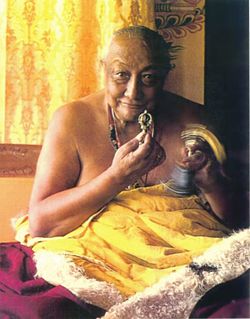A Quote by David Hume
To consider the matter aright, reason is nothing but a wonderful and unintelligible instinct in our souls, which carries us along a certain train of ideas, and endows them with particular qualities, according to their particular situations and relations. This instinct, 'tis true, arises from past observation and experience; but can anyone give the ultimate reason, why past experience and observation produces such an effect, any more than why nature alone should produce it?
Quote Topics
According
Alone
Along
Any
Anyone
Arises
Carries
Certain
Consider
Effect
Experience
Give
Ideas
Instinct
Matter
More
Nature
Nothing
Observation
Our
Particular
Past
Produce
Produces
Qualities
Reason
Relations
Should
Situations
Souls
Than
Them
Tis
Train
True
Ultimate
Unintelligible
Us
Which
Why
Wonderful
Related Quotes
Whereas certain people start with a recollection or an experience and paint that experience, to some of us the act of doing is the experience; so that we are not quite clear why we are engaged on a particular work. And because we are more interested in plastic matters than we are in matters of words, once can begin a painting and carry it through and stop it and do nothing about the title at all. All pictures are full of association.
With the unknown, one is confronted with danger, discomfort, and care; the first instinct is to abolish these painful states. First principle: any explanation is better than none. . . . The causal instinct is thus conditional upon, and excited by, the feeling of fear. The "why?" shall, if at all possible, not give the cause for its own sake so much as for a particular kind of cause -- a cause that is comforting, liberating, and relieving.
We know nothing of the principle of health, the positive of which pathology is the negative, except from observation and experience. Nothing but observation and experience will teach us the ways to maintain or to bring back the state of health. It is often thought that medicine is the curative process. It is no such thing; medicine is the surgery of functions as surgery proper is that of limbs and organs.
A man's knowledge may be said to be mature, in other words, when it has reached the most complete state of perfection to which he, as an individual, is capable of bringing it, when an exact correspondence is established between the whole of his abstract ideas and the things he has actually perceived for himself. His will mean that each of his abstract ideas rests, directly or indirectly, upon a basis of observation, which alone endows it with any real value; and also that he is able to place every observation he makes under the right abstract idea which belongs to it.
We have three approaches at our disposal: the observation of nature, reflection, and experimentation. Observation serves to assemble the data, reflection to synthesise them and experimentation to test the results of the synthesis. The observation of nature must be assiduous, just as reflection must be profound, and experimentation accurate. These three approaches are rarely found together, which explains why creative geniuses are so rare.
All our knowledge hast its origins in our perceptions … In nature there is no effect without a cause … Experience never errs; it is only your judgments that err by promising themselves effects such as are not caused by your experiments … Science is the observation of things possible, whether present or past; prescience is the knowledge of things which may come to pass.
When a rainbow appears vividly in the sky, you can see its beautiful colors, yet you could not wear as clothing or put it on as an ornament. It arises through the conjunction of various factors, but there is nothing about it that can be grasped. Likewise, thoughts that arise in the mind have no tangible existence or intrinsic solidity. There is no logical reason why thoughts, which have no substance, should have so much power over you, nor is there any reason why you should become their slave.





































